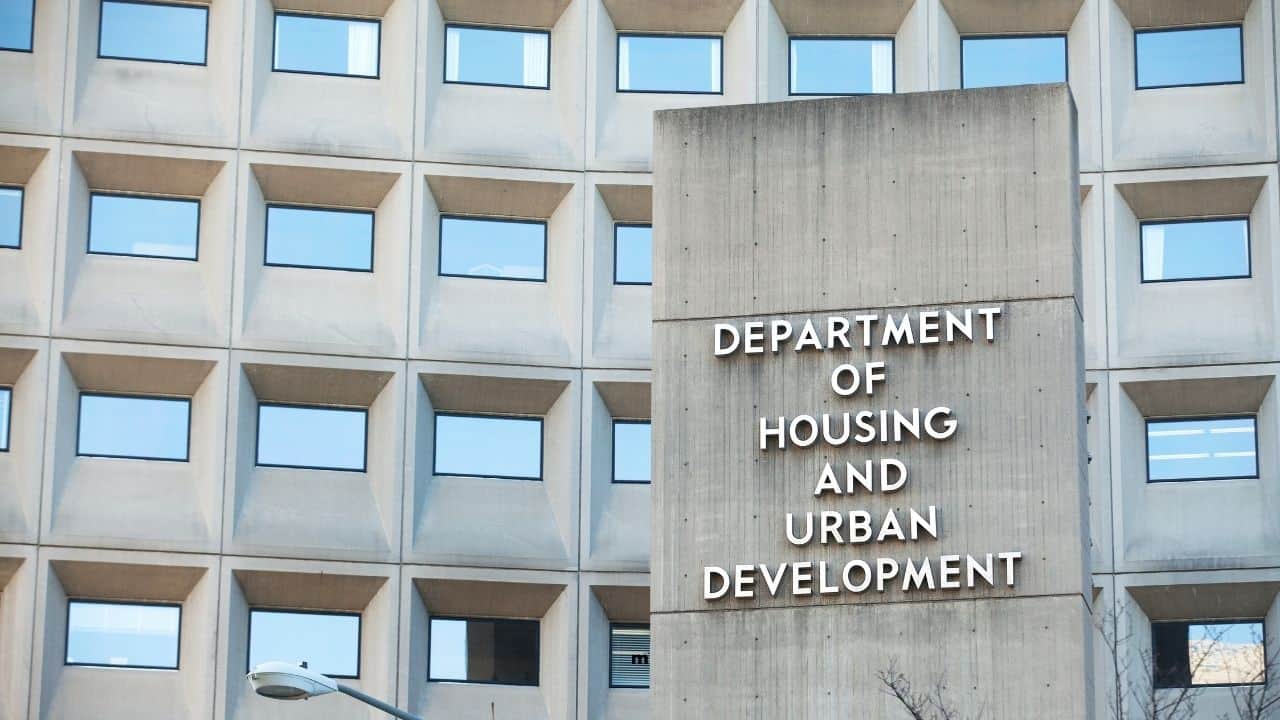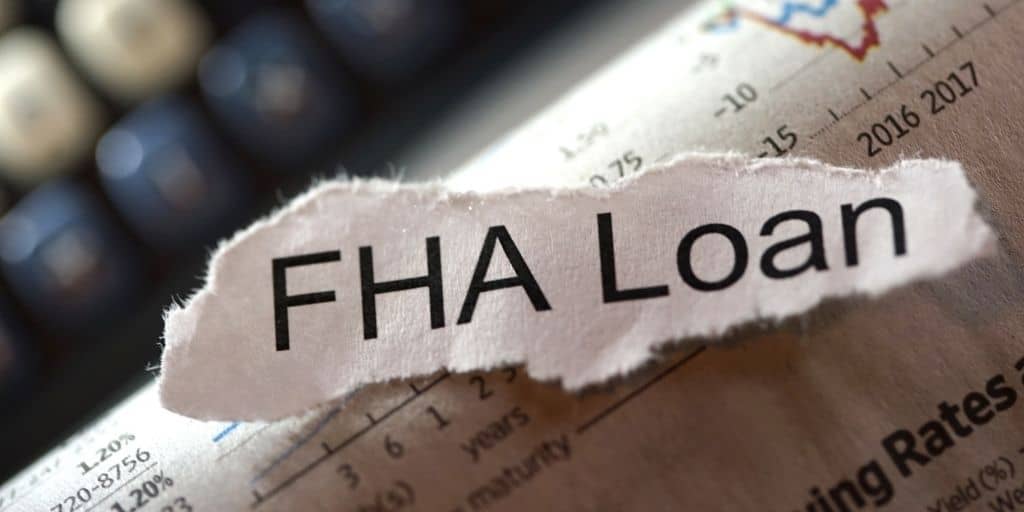What Is the Department of Housing and Urban Development (HUD)?
What Is the Role of HUD?
The United States Congress established HUD in 1965 as an executive, Cabinet-level agency. It aims to consolidate all federal efforts to develop and organize housing in urban areas and make affordable housing available for all Americans[1].
Apart from its chief directive, the HUD also aims to:

- Assist state, county, and municipal governments in solving housing problems in communities and metropolitan areas.
- Plan and conduct community programs and development.
- Cooperate with private enterprises to achieve HUD objectives.
- Conduct comprehensive housing and urban development studies and share the results with the public[2].
The Secretary of Housing and Urban Development, the head of HUD, is a Cabinet appointee. As a Cabinet member, they report directly to and advise the President on housing-related issues. The HUD Secretary also oversees federal housing policies, manages HUD programs, and ensures that the agency as a whole is aligned toward its goal of providing affordable and fair housing[3].
Sometimes, HUD may repossess residential properties they had insured under FHA but have since gone into foreclosure. Then, to recover its losses from the unpaid mortgage, HUD sells it at fair market value to the highest bidder, without warranty or improvement (or called “as-is”).
HUD Organizations
The HUD manages different tasks and programs that specific subunits carry out. Some of these programs, agencies, and offices are:
- Federal Housing Administration (FHA). The FHA is an agency under HUD. The FHA was an independent body but was later incorporated into HUD in 1965. The FHA originally intended to revive the housing industry after the Great Depression[4]. Now, the FHA insures loans originated by FHA-approved lenders, which follow FHA lending guidelines[5].
- Government National Mortgage Association (GNMA or Ginnie Mae). A government-sponsored enterprise is a corporation that “buys” mortgages and servicing rights on the secondary mortgage market. GNMA, popularly known as Ginnie Mae, buys mortgages on this market alongside its older cousins Fannie Mae and Freddie Mac[6]. Unlike the FHA, Ginnie Mae is a private corporation with government oversight.
- Office of Federal Housing Enterprise Oversight (OFHEO). This office regulates mortgages, particularly their affordability, liquidity, and stability. It oversees Fannie Mae (the Federal National Mortgage Association) and Freddie Mac (the Federal Home Loan Mortgage Corporation)[7].
- Office of Community Planning and Development (CPD). This office distributes different grants throughout the U.S. for low-income communities to support their development and financial growth[8].
- Fair Housing Assistance Program (FHAP). This program under HUD enforces the Fair Housing Act by studying and investigating claims that violate housing policies. It also supports the FHIP.
- Fair Housing Assistance Program (FHIP). Gives public and private entities grants to prevent discriminatory practices in housing private efforts to prevent or eliminate discrimination in housing. The agency does this by creating programs for local housing agencies to comply with the Fair Housing Act.
- Public and Indian Housing (PIH). This office operates the public housing initiatives of HUD and maintains programs for residents’ financial independence and self-sufficiency. Among other things, PIH also runs Section 8, or the housing choice voucher program that subsidizes rent for eligible families.
- 203(k) Program. The 203(k) loan program is an FHA operation that insures loans taken out to finance a house purchase, renovate a home, or refinance a mortgage. Since low-income borrowers usually have to settle for high interest rates from lenders since they are absorbing more risk, the backing of the FHA as an insurer ensures that borrowers get more reasonable rates.
What Is HUD’s Section 8?
Section 8, or the Housing Choice Voucher program, is one of HUD’s public housing programs since 1974. One of its goals is to subsidize rent for low-income American families, thus helping them find decent housing in a suitable living environment.
Low-income (those whose incomes do not exceed 80% of the median income in an area) or very low-income (less than 50% of the median income)[9] families are usually eligible for Section 8 vouchers. Depending on the capability of the eligible to pay rent, the vouchers pay all or a portion of the rent to the landlord.
Eligible families may receive their housing voucher once they apply and satisfy federal requirements, upon which they should find suitable housing. The voucher can also apply to their present dwelling. In most cases, the local housing authority is responsible for issuing payments to the landlord, depending on how much assistance the eligible family is qualified for[10].
BY THE NUMBERS: Section 8 assists about 1.4 million families with their rent.
Source: Legal Beagle
Takeaways
- The Department of Housing and Urban Development (HUD) is a Cabinet-level executive agency that administers federal housing and community development. It also operates public housing and enforces housing-related laws.
- The Secretary of Housing and Urban Development is in charge of HUD and manages agencies, corporations, and offices that all carry out particular tasks to enact fair housing for all Americans. As a Cabinet member, the Secretary of HUD reports directly to the President.
- The Federal Housing Administration (FHA) is an agency under the department, while Ginnie Mae is a private corporation with government oversight. Other offices include the Office of Federal Housing Enterprise Oversight (OFHEO), the Office of Community Planning and Development (CPD), and the Office of Public and Indian Housing (PIH).
Sources
- USA.gov. (n.d.) Department of Housing and Urban Development. Retrieved from https://www.usa.gov/federal-agencies/u-s-department-of-housing-and-urban-development
- Obama Administration Archives. (n.d.) Department of Housing and Urban Development (HUD). Retrieved from https://obamaadministration.archives.performance.gov/agency/department-housing-and-urban-development.html
- Johnston, K. (2021). What Does the HUD Secretary Do? Investopedia. Retrieved from https://www.investopedia.com/insights/what-does-secretary-housing-and-urban-development-do/
- Fritz, M.(n.d.) Federal Housing Administration (FHA). Britannica. Retrieved from https://www.britannica.com/topic/Federal-Housing-Administration
- Leonard, K. (2018). How to Qualify for HUD Homes. SFGATE. Retrieved from https://homeguides.sfgate.com/qualify-hud-homes-7281.html
- Graham, K (2021). Ginnie Mae (GNMA): How the Government National Mortgage Association Works, and Its Effect on the Housing Market. Rocket Mortgage. Retrieved from: https://www.rocketmortgage.com/learn/ginnie-mae
- Tracy, P. (2020). Office of Federal Housing Enterprise Oversight (OFHEO). InvestingAnswers. Retrieved from https://investinganswers.com/dictionary/o/office-federal-housing-enterprise-oversight-ofheo
- USLegal.com. (n.d.) Office of Community Planning and Development (HUD) Law and Legal Definition. Retrieved from https://definitions.uslegal.com/o/office-of-community-planning-and-development-hud/
- Department of Housing and Urban Development. (n.d.) Methodology for Determining Section 8 Income Limits. Retrieved from https://www.huduser.gov/portal/datasets/il/il19/IncomeLimitsMethodology-FY19.pdf
- Miller, M. (2020). What You Need to Know About How Section 8 Really Works. ProPublica. Retrieved from https://www.propublica.org/article/what-you-need-to-know-about-how-section-8-really-works










